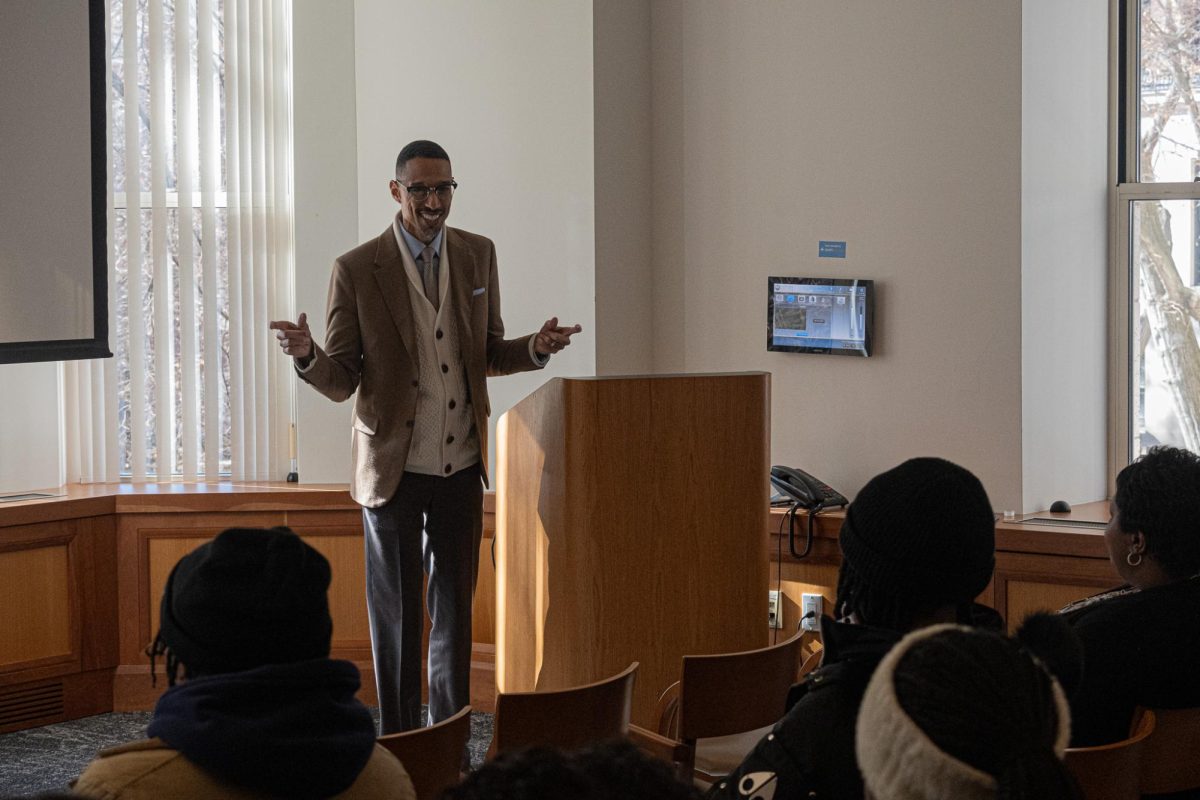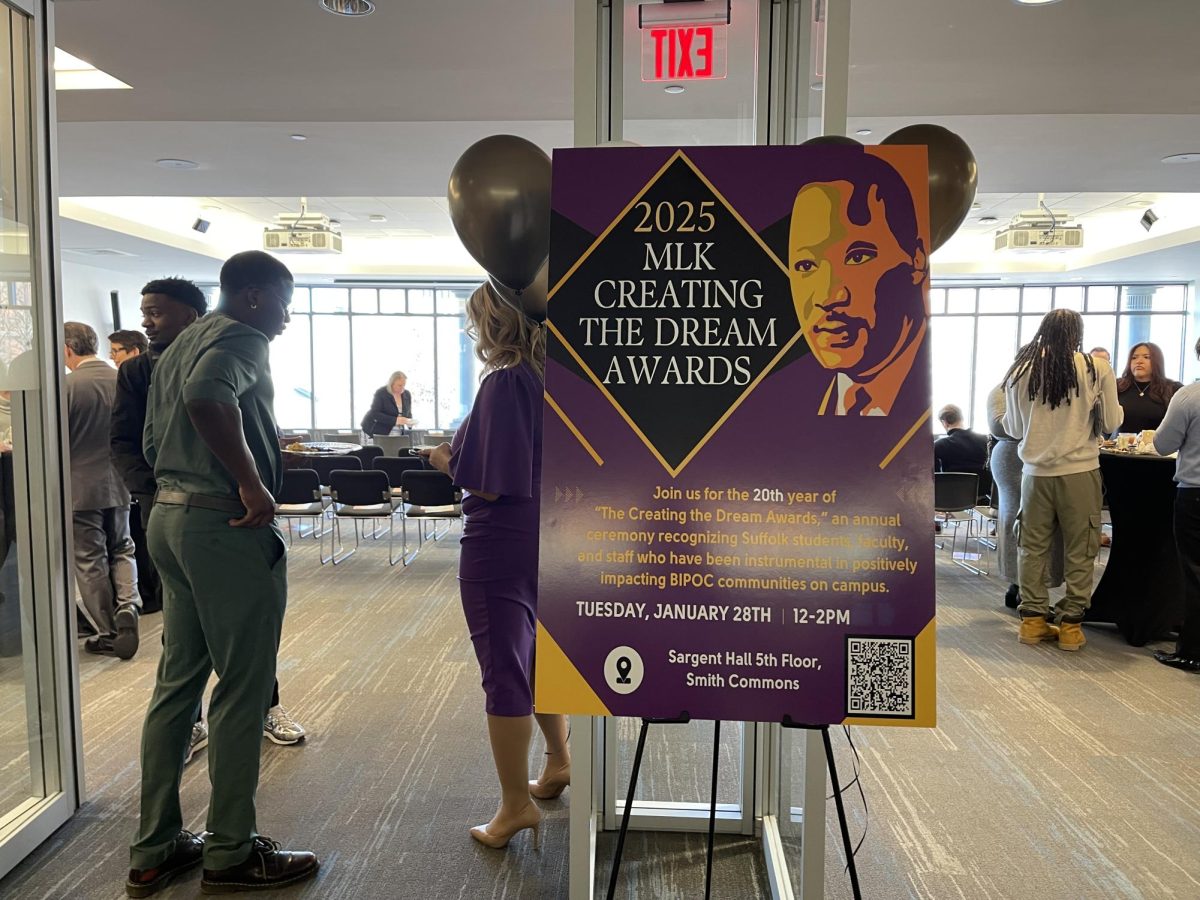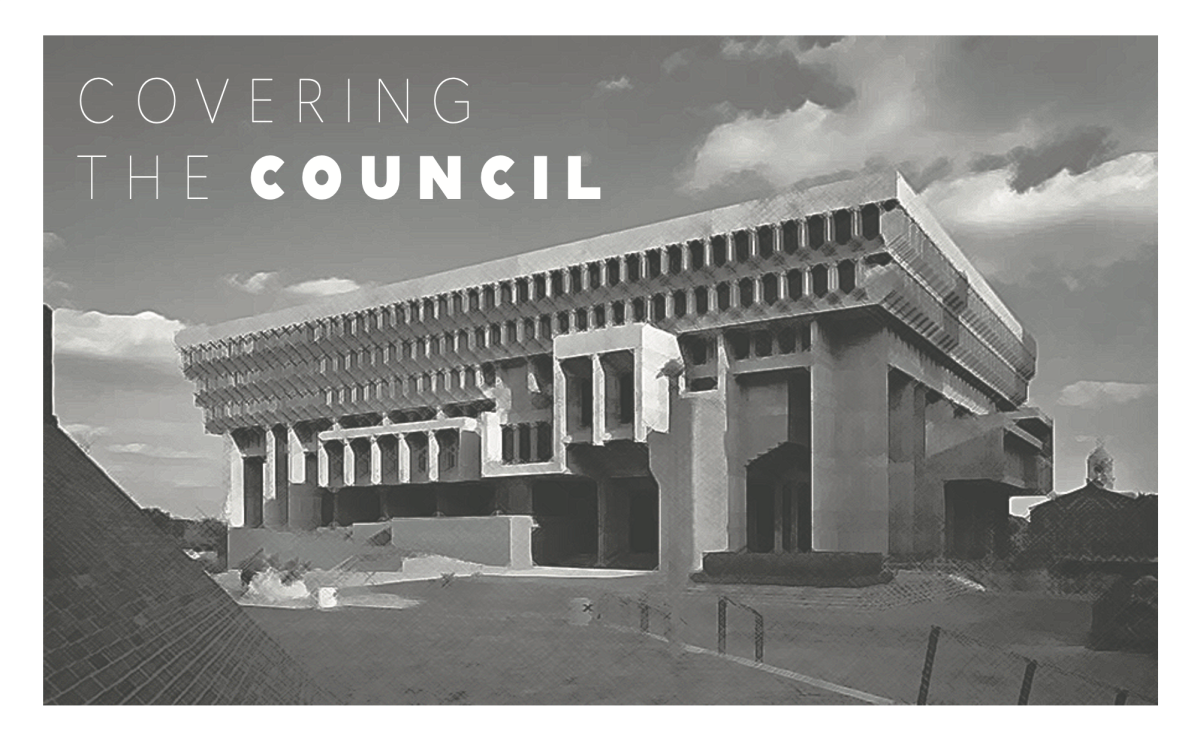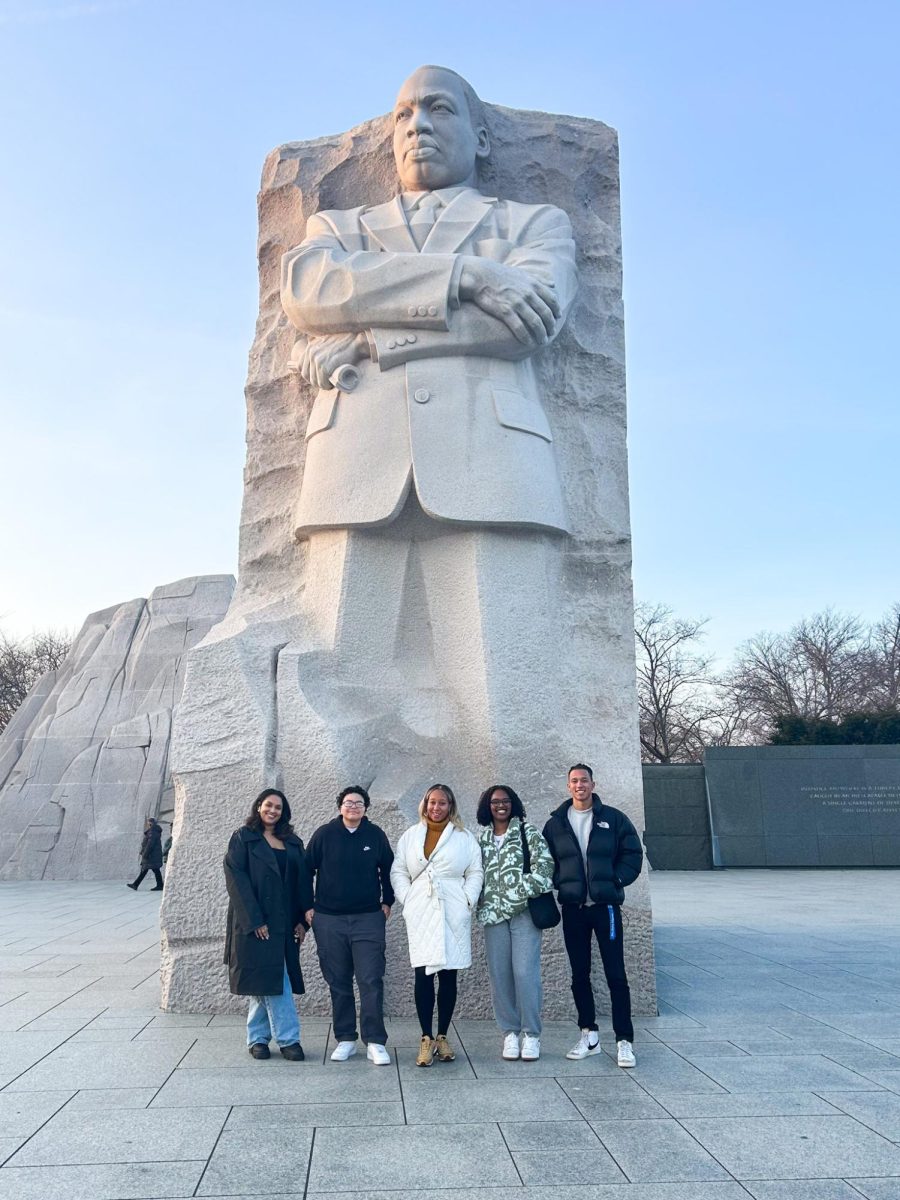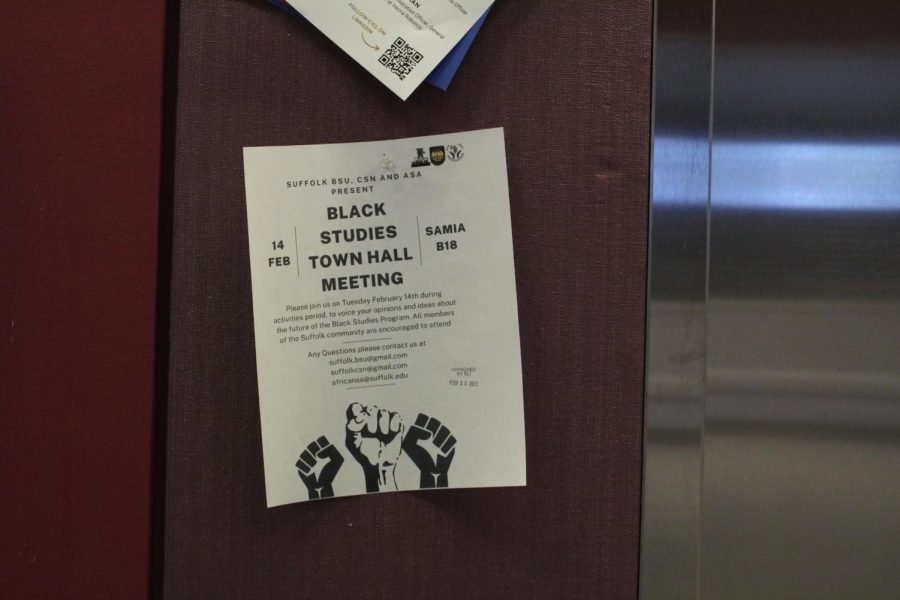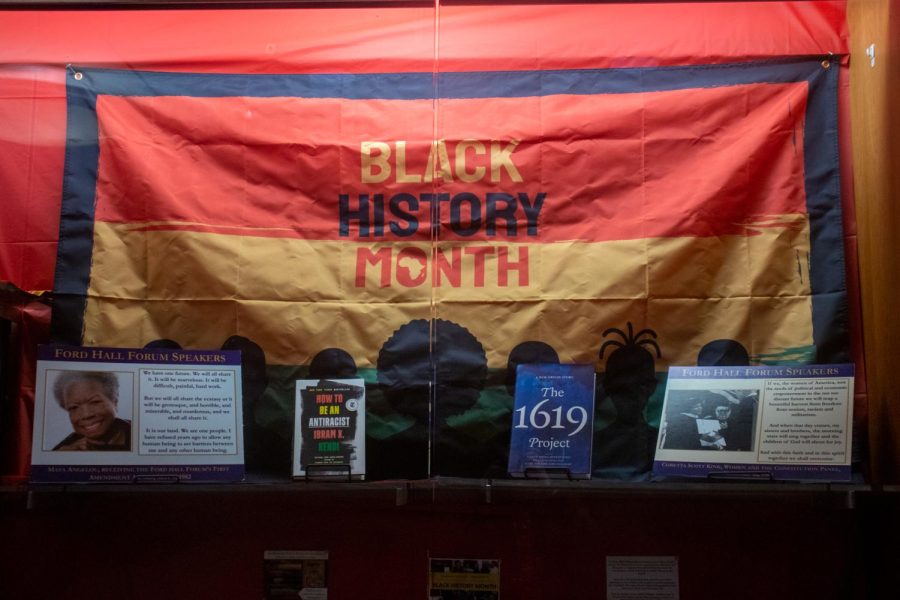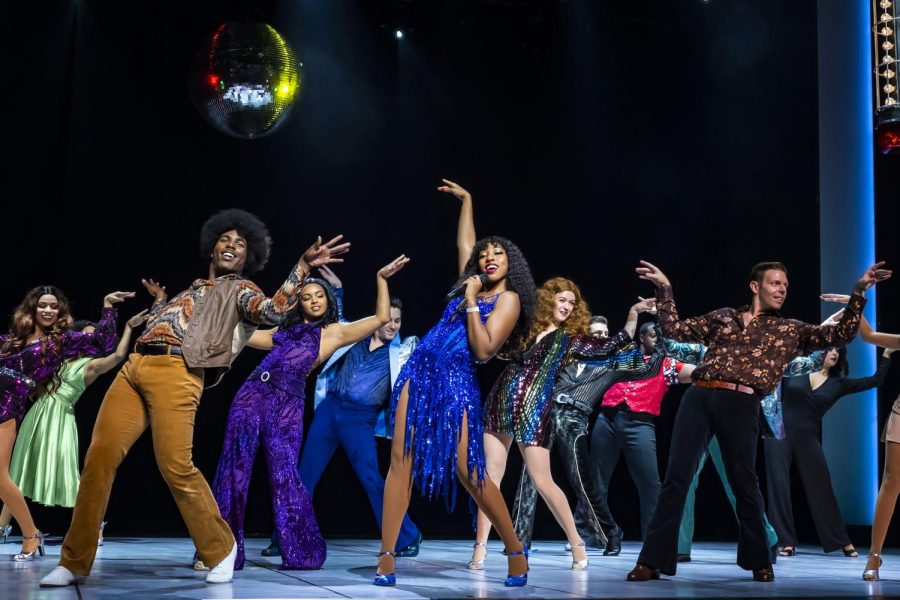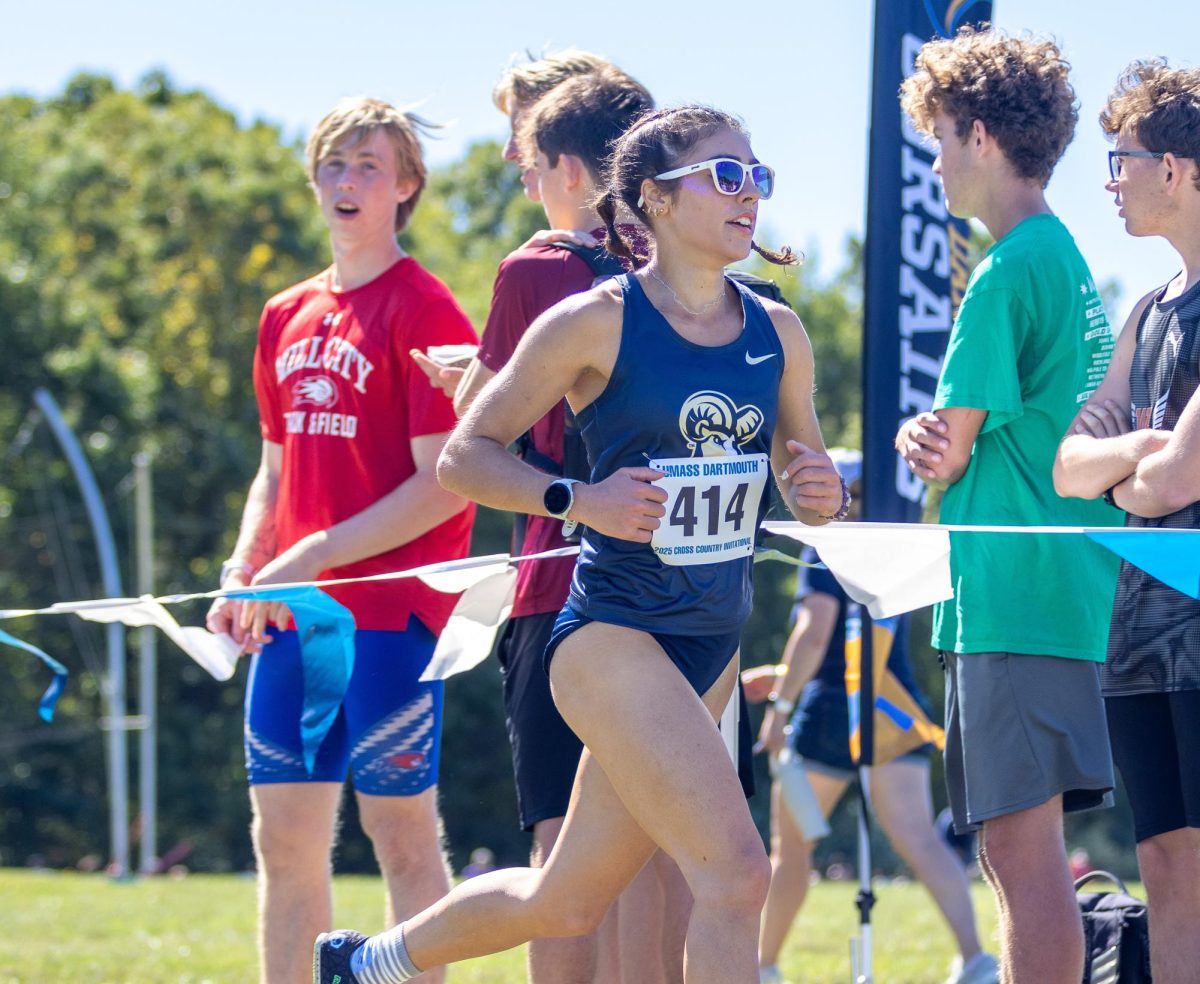Suffolk University’s Black Studies program launched its Sankofa Lecture Series Feb. 5 with guest speaker Dr. Stefan M. Bradley, chair of the Black Studies Department at Amherst College, who spoke of the Ferguson uprising, the broader Black freedom movement and the role of youth in activism.
Trent Masiki, assistant English professor and director of Black Studies at Suffolk University, introduced Bradley as someone whose ambition “will change the world for the better.”
The lecture opened with quotes by Malcolm X and George Orwell, highlighting how telling the truth is revolutionary. Bradley also spoke about pushback against diversity, equity and inclusion measures and Black Studies programs in America, especially under President Donald Trump. “We need Black Studies. We need these area studies. We need people who are willing to tell the truth in a moment of deceit,” Bradley said.
The lecture then shifted to discussing the 2014 Ferguson uprising, a series of protests spanning from 2014 to 2015 in response to the fatal shooting of Micheal Brown. Bradley focused on the various young activists involved and the complexity of movement-making.
He talked about Tef Poe, a rapper and protest leader who was on the ground when Micheal Brown was killed. Bradley noted how Poe enlisted the help of Jamala Rogers, a long-time St. Louis organizer.
“[Poe] needed the help of an elder. This is important when we’re talking about movement-making. You have the spirit, young people. Passion will take you a long way, but wisdom will help you arrive,” said Bradley.
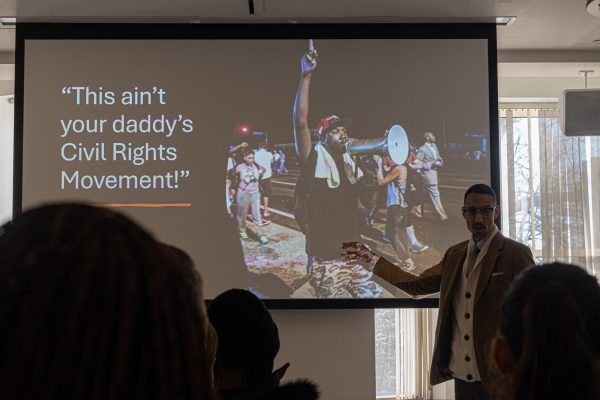
Then, Bradley spoke about Darren Seals, the co-founder of Hands Up United, a social justice activist organization formed shortly after Micheal Brown was killed. The organization does not seem active in 2025. Seals was a prominent anti-gun violence activist and heavily involved in the Ferguson uprising. Bradley said he could be considered “militant” in his style of activism. In 2016, Seals was found shot to death in his burnt-out car near St. Louis. His murder is still under investigation.
Bradley also highlighted Alex Templeton, co-founder of Millennial Activist United (MAU), who fought for LGBTQ+ rights during the Ferguson uprising.
“Alex, at the beginning of the movement, was Alexis Templeton. Throughout the movement, Alex evolved and manifested into who they are,” said Bradley.
In talking about historical movements, Bradley said, “We never told the truth about the civil rights movements. The women were always in the forefront of these movements. The queer people oftentimes were designers of the movement. We don’t talk about these things frequently, but we have to confront them.”
Instead of looking for perfect heroes, Bradley highlighted how we should recognize that social change is often driven by flawed individuals making difficult choices in an unjust system.
Bradley also discussed the cost of activism, shared experiences from his students who participated, and looked at the transition from protest to politics.
Nicholas Pollard, a sophomore public history major at Suffolk, attended the lecture as a part of an African American literature class.
“I took away that there’s a very nuanced way to look at the protest movements throughout the early 2010s, especially after the unlawful killings of unarmed Black people. Whether or not certain groups were representing them, they felt that it was their prerogative to stand up and make their voices heard,” said Pollard.
Tari-Anna Thomas-Smoot, a junior history major at Suffolk, also attended the lecture.
“I learned more about queer activity during the civil rights movement … Also, how we don’t always consider every perspective and that we should do so more,” said Thomas-Smoot.
Bradley will be releasing his book, “If We Don’t Get It: A People’s History of Ferguson,” in May. A large part of the lecture explored topics and themes prevalent in Bradley’s book. The lecture ended with Bradley reading a section from his upcoming book.
“Black youth of the Ferguson uprising were the vanguard of the last true American democrats with a small d. Those young leaders have every right to say, America, you’re welcome,” said Bradley.


